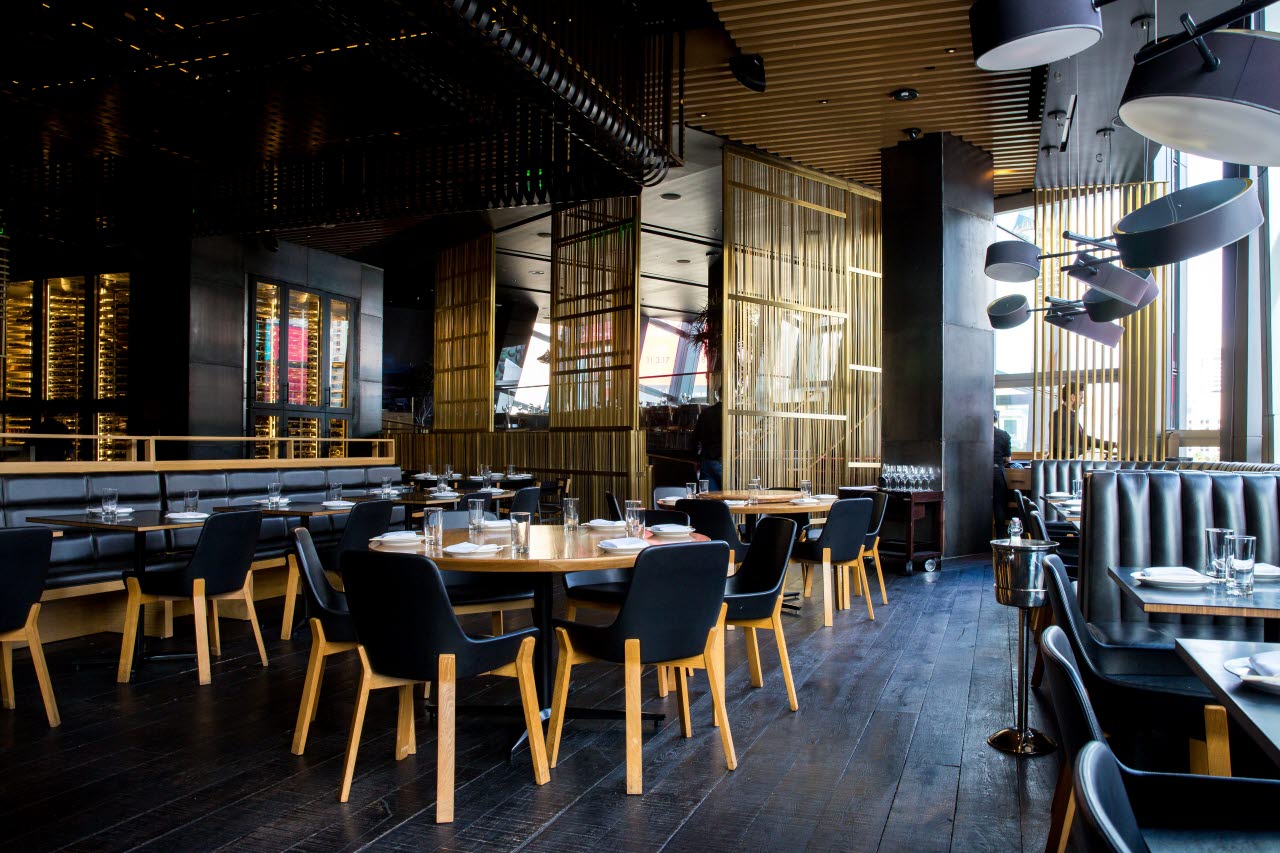Co-living
In late 2019, co-living investor Six Peak Capital employed Cushman & Wakefield to raise $1 billion in debt and equity to fund its US expansion. A clear expression of the asset-lite shared economy is now being expressed through co-living businesses such as Six Peak, OpenDoor Co-Living or The Collective, which create collaborative living spaces (a perfect example of collaborative consumption).
These spaces (says OpenDoor) “are targeted at urban creatives and millennials. Our homes are curated social environments that facilitate sharing, connections, and meaningful relationships. We are currently negotiating with developers on multiple new construction projects in the 20,000+ square foot (1850 square metre) size range”.
Trulia and Zillow – both originally house sales intermediaries – have now expanded into shared economy propositions. They set out to make house purchase and renting more efficient, for example by finding a renter for a second bedroom to support house purchasers or rent to rent entrepreneurs.
Splittable (later A Casa) facilitates the shared use of living space by tracking expenses and facilitating the sharing of bills, spinning off so-called ‘big data’ which can be sold to traditional owners, offering another revenue stream. London-based Lyvly focusses on technology which enables apartments and houses to be shared efficiently.
Shared storage
It is not just beds that people are now able to share within their homes. Start-up Clutter enables an individual’s disused garage space to be sold as short, medium and long-term storage. Softbank recently injected $200m into Clutter’s business, while competition in this space comes from MakeSpace, Omni, Trove, Livible and ClosetBox.

A number of companies are disrupting the real estate sector by incorporating data to enable house sharing, bill splitting and more
Hospitality
Airbnb is the standout shared economy platform in the real estate sector. Operational in over 57,000 cities in 192 countries, its key appeal is the classic PropTech proposition:
- offering a diverse, widely distributed source of demand (potential users of short stay hospitality);
- a diverse, widely distributed and heterogeneous source of supply (rooms);
- no dominant efficient mechanism for bringing demand and supply together;
- potential financial gains to the demand side, the supply side and an intermediary;
- and, finally, scalability.
The dominant efficient mechanism appears to be a very simple combination of a website and a brand. Traditional marketing and sales is by no means unimportant, but the value of brand, often associated with first or early mover advantage, is a huge factor in the automatic and low cost generation of volume. Shared economy businesses need ‘liquidity’ – lots of traffic. Small slices of supply revenue can be taken by the intermediary because potential volume is so large.
As in the office space market, incumbents in the hospitality sector are beginning to follow in the footsteps of market leading PropTech companies. Marriot recently partnered with Hostmaker, a home-rental management company, and offered 340 properties for homesharing stays in Paris, Rome, Lisbon and London as part of a pilot scheme which it now wants to roll out in the US.
Airbnb is also being blamed for rising local rents in many global cities, generating increasing opposition from city officials. For this and other reasons, diversification is inevitable. In 2019, Airbnb announced a partnership with New York City developer RXR Realty to launch its first hotel, which can be booked on Airbnb’s platform*. In 2019, Airbnb also acquired Hotel Tonight, a company that collects bookings from hotels and offers them at a discounted price, and invested in Oyo Hotels & Homes, an Indian hotel-booking company.
“Airbnb is also being blamed for rising local rents in many global cities, generating increasing opposition from city officials. For this and other reasons, diversification is inevitable.”
Other sectors
Support for the high street is coming from sharing economy operators such as AppearHere, whose proposition is to enable small boutiques and independent shops to either hire a single clothes rail within an existing store or to take control of a vacant shop on a short lease, commonly known as a pop-up store.
A new investible shared economy asset to have emerged on the back of the successes of home delivery services such as Uber Eats, Deliveroo and Just Eat is that of dark kitchens (also known as grey or ghost kitchens). As the demand for restaurant-prepared meals has increased in popularity, so have these combined search, payment and logistic operation platforms. As many restaurants do not have the extra capacity to deal with this extra demand while continuing to service their inhouse customers, many have begun to outsource their food delivery functions into converted warehouses, trailers and homes which now resemble industrial ‘kitchens-as-a-service’ facilities.
Full capacity restaurants can rent a station at these dark kitchens in order to satisfy their excess demand. A single site may streamline the delivery functions of multiple restaurants, with delivery drivers/cyclists/bikers no longer tied to inconvenient restaurant locations. Deliveroo opened its Deliveroo Editions kitchens in May 2017. There are fewer than 20 in the UK, predominantly in London. The units are positioned in locations chosen to meet the food choices of each locality (roughly a 2-mile radius from the kitchen). The sector is now attracting investment from tech investors such as SoftBank and Naspers in the expectation that dark kitchens can yield serious efficiencies in a fast-growing sector**.

Restaurants are now starting to explore 'dark kitchens' to meet increasing demand
The shared economy 3.0
The sharing economy relies on an ability to identify and exploit spare capacity and to reduce the associated search, bargaining and enforcement costs of a transaction, thus facilitating a more efficient allocation of unused space. With blockchain reportedly offering enhanced transaction speeds and auditability for micro payment solutions, in the near future we may see space-as-a-service offerings begin to extend into the realm of digital space, creating the shared economy 3.0.
We authors know of one graphics company which rewards computer gamers for the spare capacity of their console’s hard drive in order to crowdsource the computing power needed to develop the latest games. Such a system works through the ability of blockchain to enable the use of utility tokens and micropayments for the sharing of this digital asset. Perhaps the datacentres of the future are not warehouses in Scandinavia, but the combined spare capacity of all unused office hard drives.
The work needed to justify the digitalisation of data requires considerable velocity of transactions, so that the use of a building – security passes, use of power, meeting rooms, etc, which is already fractionalised – will be more relevant than simple tokenisation of ownership. Blockchain and tokenisation can be used to control rights to occupy and use space; this may be the first step before ownership rights are connected to the same system. The likely effective demand for an efficient token-based system recording and charging for the use of space, the use of energy and the use of consumables such as food and drink is guaranteed to be high. This is a natural extension of pre-paid credit cards that act as intelligent building passes, and of the WeWork model for flexible space use. The cost is unlikely to be high, and the development costs incurred will be spread over a very large number of transactions.
In addition, hybrid tokens offering a combination of a utility (the use of space) and a return (income and/or capital) have a promising future. Examples include fractionalised private residential, where rent/buy structures are partially financed through hybrid tokens, and community facilities such as community centres, local co-working sites and coffee shops.
Blockchain may provide the transaction platform which allows for real estate and cyberspace to converge, allowing shopping centre owners to capture on-line expenditure, helping digital twins within larger virtual smart city platforms to generate revenue, or to facilitate the collection of ‘rent’ from the digital augmentation of an asset. While this may seem highly abstract, it is our lack of understanding about how the digital and physical realms co-exist and our inability to capture the uplift in online sales generated through a physical store presence which is contributing to the demise of many, once powerful, retail firms.
*El-Bawab, N., 2019, Marriott plans to launch home-rental market platform that would compete with Airbnb, report says (CNBC Online)
**Thame, D., 2019, How Amazon's Deliveroo Takeaway Depends On Dark Kitchens (Bisnow Online)
- This piece is an excerpt from PropTech 2020: The future of real estate, produced by Said Business School as part of the Oxford Future of Real Estate Initiative.
- Read the full report here: https://www.sbs.ox.ac.uk/sites/default/files/2020-02/proptech2020.pdf
- To learn more about the Oxford Future of Real Estate Initiative, visit: https://www.sbs.ox.ac.uk/research/centres-and-initiatives/oxford-future-real-estate-initiative




